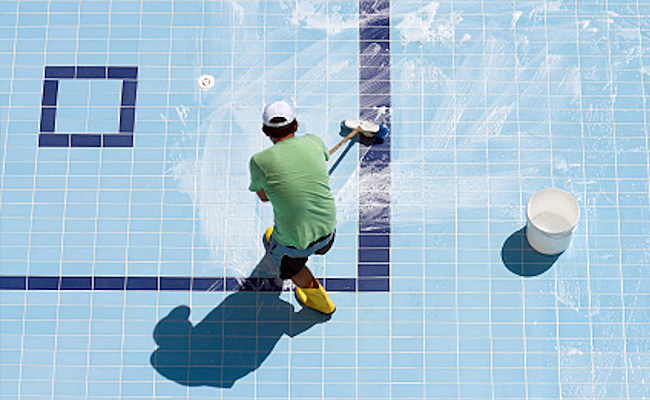
Swimming Pool Maintenance
As you may already know, maintaining your pool involves quite a lot of cleaning to ensure that there’s no debris build-up, to keeping the water clear, and to maintain safe pH levels. While this might seem burdensome to most, it’s important to realize that not all swimming pools are made the same.
Differently sized, colored and shaped plumbers have different needs when it comes to maintenance, and you might be surprised at how relatively low-maintenance your pool really is compared to what you imagine. Plus, if you hire a pool cleaning service, then the only thing you need to do is take care of a few tasks on a regular basis to keep the workload manageable and save on maintenance costs.
Below are just a few swimming pool maintenance tips that you can use to maintain your pool on your own:
Clean Debris and Baskets
If you’ve got a chlorine-guzzling pool, then you’ll love this tip. Skim the surface of your pool with your hands or a net to gather away any noticeable debris that may have collected. This way, you nip it in the bud before it collects to become a bigger problem. Doing this on a daily basis will increase your pool’s efficiency and will reduce the amount of chlorine that it needs. While you’re at it, also clean the plastic basket regularly to enjoy the same benefits.
Vacuum the Pool
Once a week, take a pool vacuum to thoroughly clean your pool’s surface to remove dirt and debris. It doesn’t matter if it’s manual or automatic; as long you do it regularly, you’ll get the desired results. Just be sure to clean the plumbing service filter as well afterward if it needs cleaning. You can also brush the pool walls once a week with a solution of equal parts water and muriatic acid to reduce the build-up of algae and calcium deposits as well.
Service the Heater
Swimming pool heaters are the least demanding part of pool maintenance as they only need to be serviced once every few years. This goes for both gas and electric heaters. However, if you experience abnormal irregularities in the pool’s temperature, then you should check the heater for possible obstructions like calcium scales, which may be preventing it from working properly.
It’s important to have the heater serviced by a professional in this case, as it needs to be taken apart in order to clean the tubes out with specialized chemicals.
Maintain Water Level
Check your pool’s water levels regularly, especially during the summer season. It’s important that the water levels don’t fall too low, as that could lead to a damaged pump. So be sure to fill it up with a garden hose every time you notice the water levels going down, and even when you drain it for service, don’t let it sit empty for long periods of time as that might damage it too.
Maintain the pH Level
Your pool’s pH levels are an indication of how alkaline or acidic your pool is. A pH level of 7.2 to 7.8 is what you should be aiming for, as it indicates safe swimming conditions and is a good balance between alkalinity and acidity. plumbing repair with a pH level that is too high can cause health concerns for those who swim in it and may affect those with sensitive skin the most.